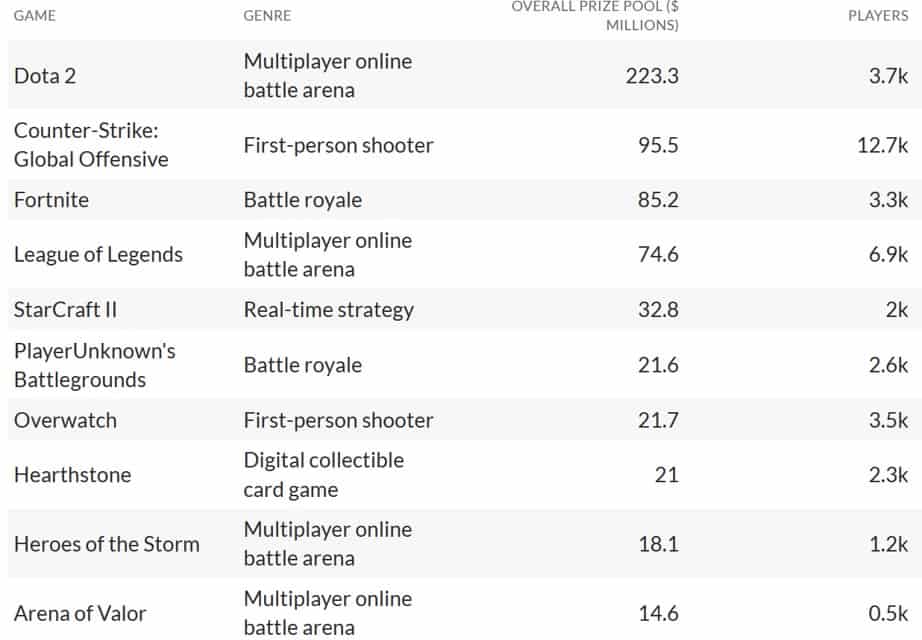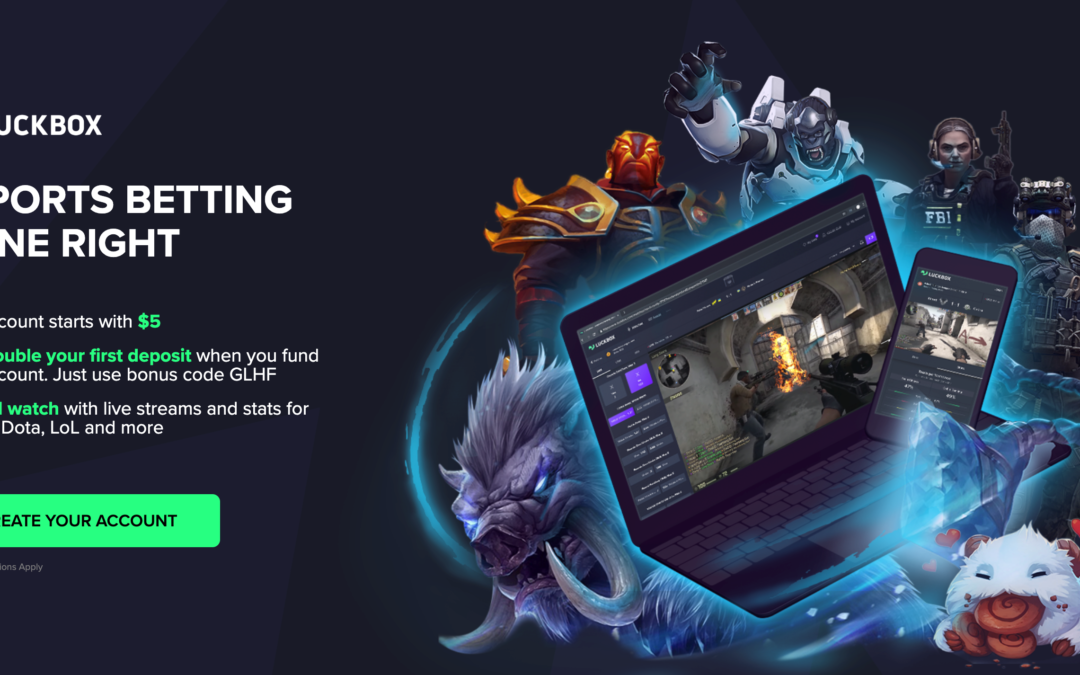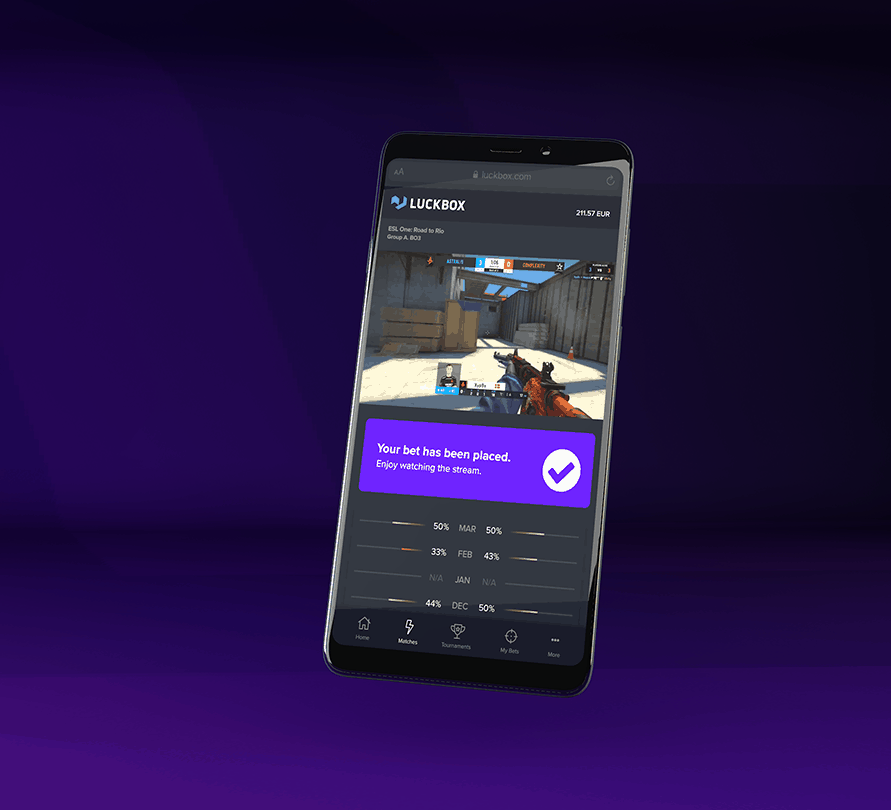Sophic Capital is pleased to introduce you to our new client Luckbox, a privately held esports betting company that expects to list on Canada’s TSX Venture exchange on Tuesday, December 15, 2020 with the symbol “LUCK”. Luckbox (the “Company”) has a fully licensed betting platform dedicated to serving the global esports community where fans and customers are able to watch, chat, and bet on esports in a safe and regulated environment. Luckbox serves the single largest revenue category in esports today and derives its revenue from one of the most promising verticals in the esports arena – betting.
We recently spoke with Luckbox CEO Quentin Martin, to learn more about Luckbox and its opportunities in the esports betting market. In this first interview with Quentin, we discuss the esports market, in general. In subsequent reports, we continue our conversation with Quentin, focusing on Luckbox and the Company’s growth opportunities and strategies.
Q: Quentin, I’d like to start with esports questions so that investors have a foundation to learn about Luckbox and esports betting. For those who may not know, what exactly are esports?
A: Esports are competitive video games played in front of an audience. They can be historical video games like Mortal Kombat and Street Fighter or newer, popular titles like League of Legends and Fortnite. Esports also extends to the gaming versions of traditional sports like football, basketball, and ice hockey. We can trace back the first esports competitions to 1972 with a video game called Spacewar. The winner was crowned the Intergalactic Spacewar Champion and won a subscription to Rolling Stone magazine.

Spacewar
Source: Rolling Stone
Q: Some investors may not know how big the esports industry is. Is esports a growing market?
A: Esports viewership has surpassed the audiences for traditional competitive sports. For example, in 2019 the NFL regular season attracted 180 million viewers and MLB had 110 million fans. That same year, esports had 443 million fans. By 2024, the esports audience could grow to 888 million. Esports champions now win far more than free magazine subscriptions – in 2019, the top five Dota 2 players each won $3.1 million which was $100,000 more than what Novak Djokovic earned at Wimbledon that year. That’s an incredible statistic given that Djokovic was then ranked the world’s top tennis player.
Q: How has the coronavirus pandemic affected esports?
A: I’ll begin with an overview of how video game popularity increased during the pandemic. During the initial stages of the pandemic, as people and families were forced to stay at home and needed to entertain themselves, one of the activities they gravitated towards was video games. In a May 2020 U.S. Internet user survey, eMarketer found that 26% of respondents spent more time playing video games. As of September 2020, the U.S. saw video game sales increase 23% year-to-date over the same period in 2019. So, the pandemic did increase video game activity across the value chain from video game sales to player engagement.
Q: And did the increase in gaming popularity in 2020 benefit esports?
A: At the onset of the pandemic, all traditional sporting events were cancelled. Recall, in March 2020 the NBA cancelled its season, which was perhaps when the impact of the COVID 19 pandemic first started becoming apparent in North America and the sporting world. As a consequence, sports betting was devastated in the aftermath. Esports events were also delayed or cancelled as the world locked down, but esports rebounded quickly since online streaming was already a primary channel for hosting and broadcasting competitions. So esports events fully pivoted online relatively easily and quickly resumed their seasons. With more people playing video games during this time, esports interest increased too, albeit at a much lower rate than video gaming. That same eMarketer survey from May 2020 that I quoted earlier found 4% of U.S. Internet users participants spent more time on esports.

Top 10 Competitive esports by Prize Pool
Source: MarketWatch
Q: Has esports popularity increased since this past May?
A: Online esports and gaming channel Twitch (owned by Amazon) saw its viewed hours increase to 5 billion in the second quarter of 2020. That was a 50% increase over the first quarter. Facebook, even though its viewed hours are about a fifth of Twitch’s, saw its viewership increase 75% over the same period. And…
Q: My apologies for interrupting, Quentin, but esports research firm Newzoo Global forecasts that esports revenues will decline year-over-year.
A: That’s true, due to the delays and cancellations of many esports competitions when the pandemic first fell upon us. But as I mentioned before, esports reopened much faster than traditional sports. Revenues have also suffered because esports fans weren’t (and largely aren’t) allowed to attend events in person, affecting merchandise sales, concessions revenues and facility rentals. Plus, advertising revenues slumped during the pandemic. And, although esports revenues in 2020 are forecast to decline because of these factors, neither viewership nor the number of organizers are expected to follow. Overall, some independent industry analysts estimate that the esports industry has been growing at around 50% annually, for the past few years.
Q: Thank you for providing our readers with your esports overview, Quentin. Let’s now turn to where Luckbox operates – esports betting. Please tell us about your industry.
A: You’re welcome. It’s my pleasure to share my views. Esports has been around since computer video games. Back then, betting was more about winning virtual cosmetic enhancements to video games called ‘skins’. These were, for example, unique clothing or weapon patterns that could be overlaid in video games, giving the items a uniqueness – customizing the game to the player’s tastes. Skins have declined in relevance over the past few years, driven by game creators and various gaming platforms. Loot boxes, which contain unknown virtual items and are purchased by users, represent another form of in-game, micro-transaction type gaming activities. These are present in many games today, but some regulators are concerned about their similarity to scratch-off tickets (albeit, in a digital in-game form), and some jurisdictions may attempt to regulate loot boxes. Esports betting platfoms, on the other hand, allow gamers to watch and bet on esports tournaments (i.e. video game players or teams playing against each other).
Q: How big is esports betting today?
A: Total esports betting in 2020 could range between $12 and $15 billion, up from $5.5 billion in 2016.
Q: And how much for that $12 to $15 billion in 2020 esports betting will go to the bookmakers?
A: Some estimate that esports betting websites could earn $1.8 billion in vig this year. Bear in mind, a significant portion of activity takes place in unregulated markets, similar to real money online gaming, which makes it somewhat challenging to place an exact value on the total esports betting market.
Q: ‘Vig’?
A: ‘Vig’ stands for “vigorish”. It’s a betting term that refers to the fees a bookmaker charges for every bet.
Q: We’ve spoken about COVID-19 increasing the popularity of gaming and esports. Has the pandemic accelerated esports betting?
A: Yes, because many esports competitions resumed well before traditional sporting events like NFL, FIFA, and MLB. Some esports competitions simulated traditional sports and sports betting followed. NBA fans could easily transition to NBA2K esports tournaments much quicker than they could League of Legends (although that’s a hot property for esports betting). Before the pandemic, in February 2020, the U.K.’s Gambling Commission published a 2019 consumer gambling report that found 6% of survey respondents had bet on esports, with 4% of respondents having bet on esports in the prior 12 months. Industry analysts estimate that the global esports revenues for providers is still around 1% to 2% of revenue generated by the more mature sports betting market, which suggests the industry and Luckbox have a strong growth opportunity to tap into.
Q: Quentin, thank you for providing the investor community with an overview of the esports and esports betting markets. Where can investors go to find out more about Luckbox?
A: You’re welcome. Investors can contact Sophic Capital, our investor relations firm, at All@SophicCapital.com. You can also subscribe to Luckbox’s email newsletter: https://upscri.be/l4q7zg
Coming up…
In our next interview with Luckbox CEO Quentin Martin, we focus on the Company itself and discuss Luckbox’s management team, its competitive advantages, and more.



